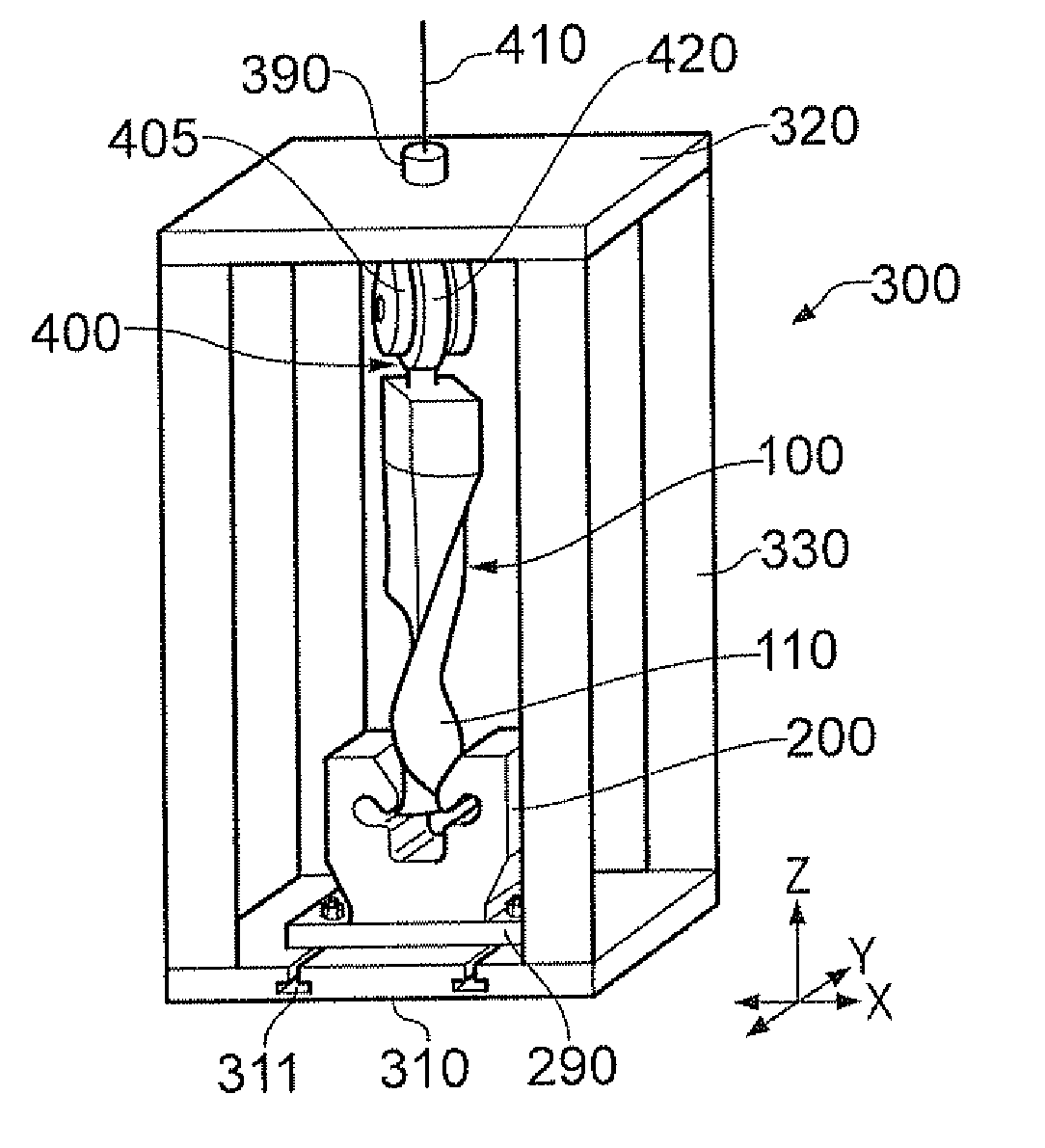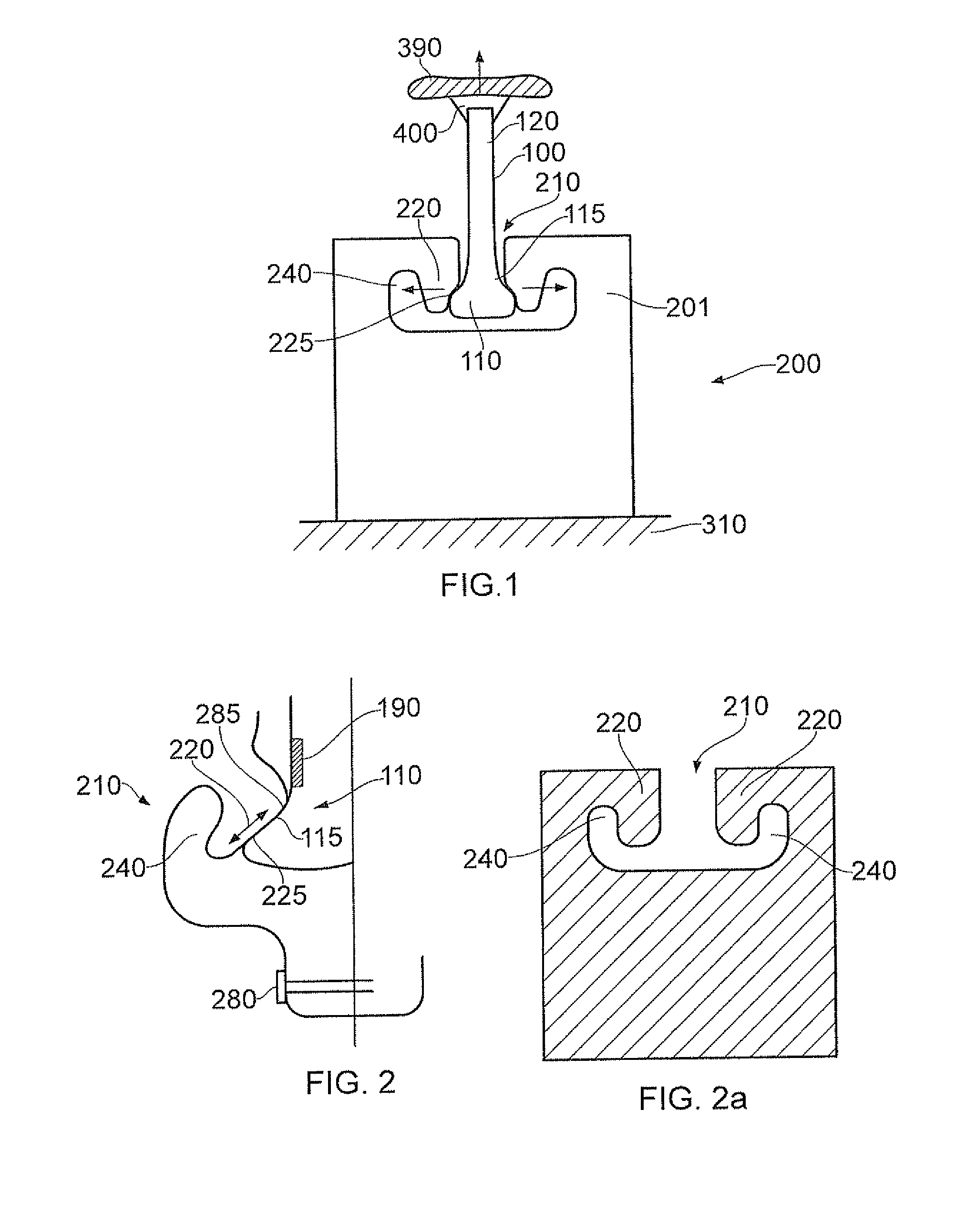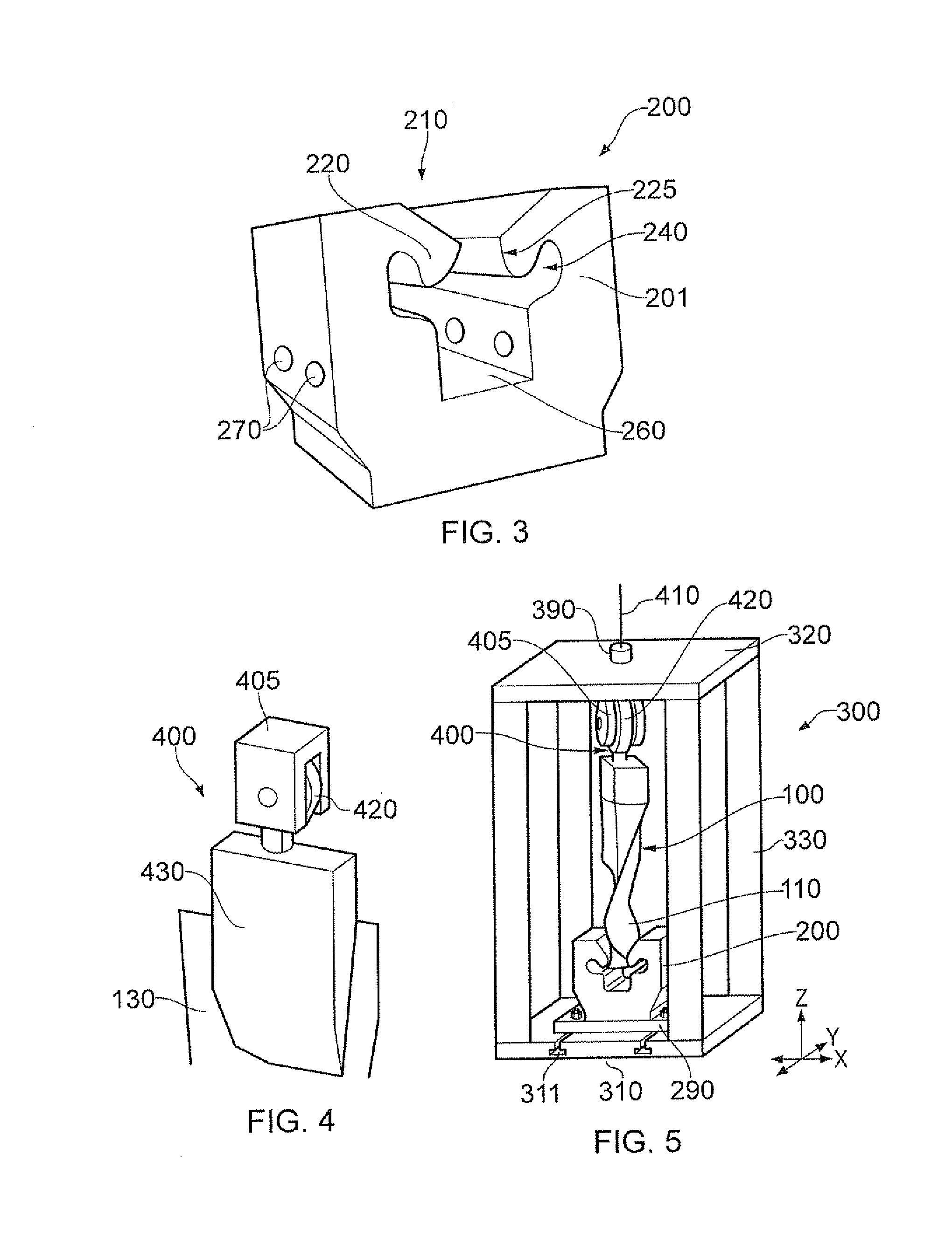Apparatus and method for simulating lifetime of and/or stress experienced by a rotor blade and rotor disc fixture
a technology of rotor disc fixture and lifetime simulation, which is applied in the direction of instrumentation, gas turbine engine testing, structural/machine measurement, etc., can solve the problems of difficult to test the root of the blade under conditions representative of the operating conditions of the gas turbine engine, not always giving a correct estimate of lcf, and difficult to test the whole blade stati
- Summary
- Abstract
- Description
- Claims
- Application Information
AI Technical Summary
Benefits of technology
Problems solved by technology
Method used
Image
Examples
first embodiment
[0053]An apparatus and method for simulating the stresses experienced by and / or the life of a mounting arrangement of a rotor blade in a rotor disc will now be described. The mounting arrangement refers to the features attaching the blade root to the rotor disc and includes both the root of the blade and the mounting features of the rotor disk. The method and apparatus will be particularly useful for simulating a blade mounting arrangement in a gas turbine engine. However it may be used to simulate blade mounting arrangements in any suitable apparatus with rotating blades, eg a compressor, a turbine, a rotor craft, or wind turbine.
[0054]In the present embodiment the root of the rotor blade under investigation forms a dovetail fit with the rotor disc. However arrangements with other friction fits, eg a fir tree root arrangement, could also be simulated.
[0055]The apparatus is used to simulate the rotor blade root region stress distribution, displacements and slip generated by the cycl...
second embodiment
[0070]FIGS. 3 to 5 show an apparatus which may be used for testing a rotor blade specimen in a static fatigue rig. The apparatus is able to replicate the displacement and stresses in the root and shank region of the blade both in the radial and axial directions.
[0071]A blade mounting member 200 is designed to reproduce the root (eg dovetail) contact and shank stresses, slip and displacement observed in the simulated rotor blade and rotor disc mounting arrangement in operational conditions (eg those in a turbine engine under centripetal loading). A tension load simulating the centripetal load is applied to the rotor blade specimen 100 through a blade attachment member 400 attached to the wing (eg the aerofoil region) of the blade specimen. The tension load is applied in a way that allows non axi-symmetric loading and so the introduction of blade lean and twist. Lean and twist are required to replicate the change in blade shape under the centripetal loading and steady aerodynamic forc...
PUM
| Property | Measurement | Unit |
|---|---|---|
| tension | aaaaa | aaaaa |
| stiffness | aaaaa | aaaaa |
| force | aaaaa | aaaaa |
Abstract
Description
Claims
Application Information
 Login to View More
Login to View More - R&D
- Intellectual Property
- Life Sciences
- Materials
- Tech Scout
- Unparalleled Data Quality
- Higher Quality Content
- 60% Fewer Hallucinations
Browse by: Latest US Patents, China's latest patents, Technical Efficacy Thesaurus, Application Domain, Technology Topic, Popular Technical Reports.
© 2025 PatSnap. All rights reserved.Legal|Privacy policy|Modern Slavery Act Transparency Statement|Sitemap|About US| Contact US: help@patsnap.com



